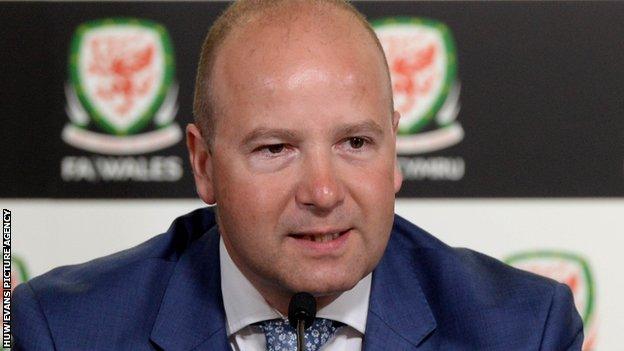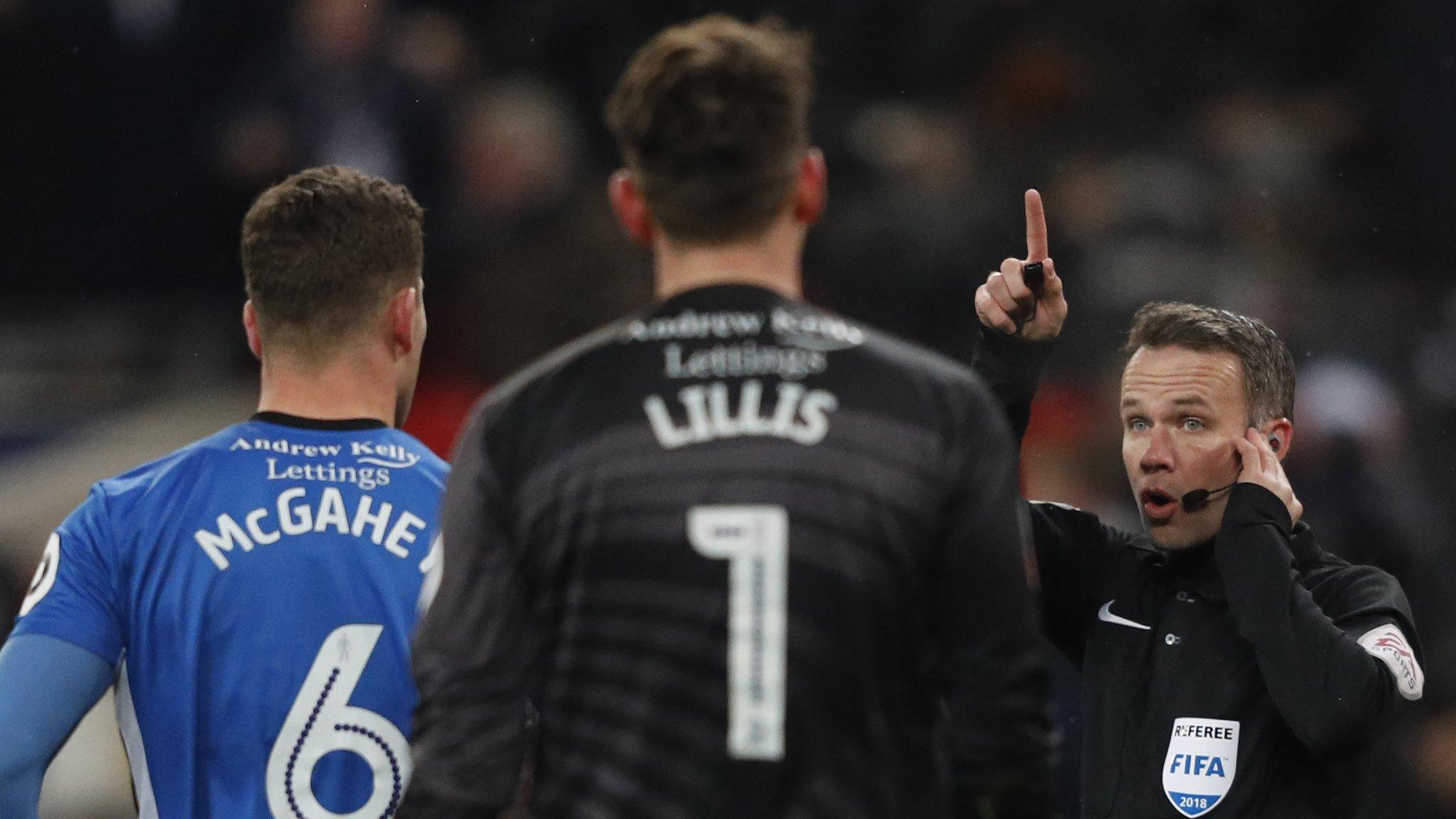Approval of VAR for 2018 World Cup a 'landmark' - Jonathan Ford
- Published

Ford was appointed to the role in 2009 and has been widely credited with lifting the FAW's profile and increasing turnover.
The approval of video assistant referees at the 2018 World Cup has been dubbed a "landmark" by Jonathan Ford.
Football Association of Wales chief executive Ford was part of the International Football Association Board (Ifab) which unanimously approved the use of VAR.
"The official decision for the Fifa World Cup has not been made but it is a landmark decision," said Ford.
A final decision on the use of VAR at the World Cup will be made on 16 March.
Ford added: "The statistics of the over 1,000 games that have used VAR are overwhelming.
"You go from a 93 per cent accuracy rate to almost a 99 per cent accuracy rate.
"It's important we get it right, it is for the big decision - red and yellow cards, the goals, mistaken identity - and I think we should be careful we don't jump (to conclusions).
"When we saw the match the other night [Tottenham vs Rochdale], just the 10th in England [with VAR], we shouldn't be making rash decisions based upon the one or two unfortunate situations.
"After a little while things settle down and there will be human errors being made, at the moment about one in three games are affected by an inaccurate decision and with VAR that reduces to one in 19."
Ifab is made up of world governing body Fifa and the Football Associations of England, Scotland, Wales and Northern Ireland. Each FA has one vote to Fifa's four, with six votes required for a change in the laws.
Although Ford voted for the use of VAR at the World Cup and it's continued use in football, he conceded that there is still work to be done.
"We have to be careful in football because if you show red card incidents we could get crowd issues and of course we don't want that, but we do have to make sure the players, fans and people watching the TV are informed," he said on BBC Radio Five's Sportsweek.
"We are going to have to work to find the right solutions, not necessarily the same as in rugby, cricket or tennis, but we need to find a solution so everyone understands what is happening and what the decision that is made is."
'Just make the big decisions'

Nigel Owens was the referee in the 2015 Rugby World Cup final between New Zealand and Australia
Welsh rugby union referee Nigel Owens says there is place for VAR in football but governing bodies have to be careful it is used in the right way.
"It does work well and that's why people would like to see it in the sport [football] because when it is not humanly possible to get the decisions on the field correct you have the technology to get the ones that really matter, the goal-defining and try-defining ones in rugby," said the 46-year-old.
"It is beneficial for the game and you really need it sometimes because it is impossible to make on the field as the referee.
"You have to be careful it's used in the right way. What we have learnt with rugby over time is you need to let those decisions come to you."
Owens emphasised the importance of using VAR for only the key decisions in the games and not every small technicality which could be corrected.
He said: "In rugby, and in football, if you want to go looking for a technical decision it is easy to do so, but what you want is for this [VAR] to help make the big, clear decisions the on-field officials somehow missed.
"If you keep it to that, and just make those big decisions, the ones that jump out and come to you, rather than searching for a technical decision, then it will benefit the sport."
"People need to have patience with embedding it. It's new to football and the referees."
- Published3 March 2018
